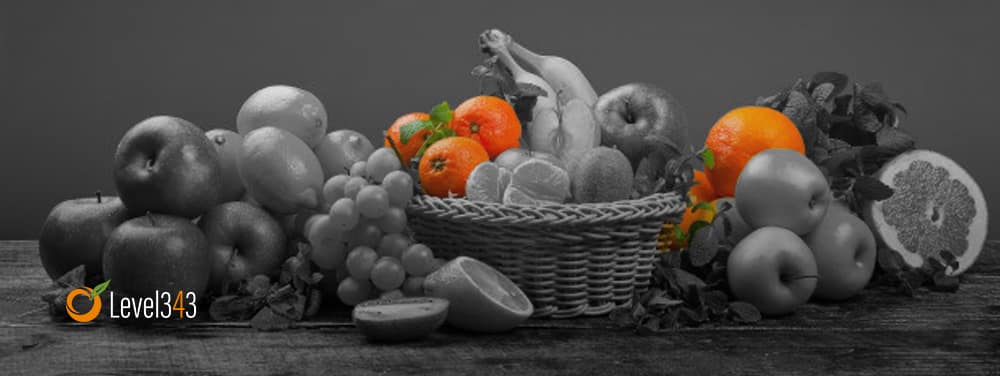Editor’s Note: This was originally posted in 2009, but has been updated to match current SEO standards, providing recent information and relevant, current links.
Part of an optimization specialist’s job is to pay attention to search trends, and “organic SEO” is almost always one of the terms at the top of the list. What’s the difference between organic optimization and online marketing? Why can’t it all just be… marketing? Well, it is all marketing, but just as all roses are flowers but not all flowers are roses, not all marketing is the same.
Regular Ole’ Marketing
The technical term of what we’re talking about here is just “online marketing”. It’s cold, it’s calculating algorithms, and it’s search engine based. It can get your site up to the top rankings in the search engines rather quickly. Methodology includes, but isn’t limited to:
- Paid links
- Link submission sites
- Influencer articles, blogs and web content
- Paid placements
- PBN (Public Blog Networks)
There is nothing wrong with this type of marketing, as long as your agency knows what they’re doing. It’s fairly easy to move over the edge from “white hat” to “black hat”, so careful consideration should be taken to decide a step-by-step approach for your site ranking. As well, many links will expire after awhile and will need to be done all over again to keep your placement.
Organic SEO
Organic SEO is a different genie. Many marketing professionals may explain organic optimization as “results from any search that you haven’t directly paid for”. Others will give you a bit more of a technical response, “Algorithm driven results given to you by any search engine once you plug in specific keywords.” Me, I’m biased. I’ll tell you, “It’s the way to go.” Methodology includes:
- Writing great, user-based content
- Offering guest blogging spots
- Paying attention to link exchange requests to get the most useful links for your readers and visitors
- Article submissions to select sites
- Adding links to your site because they’re useful, rather than because they’ve linked to you.
Organic SEO may take a bit. However, the results are long lasting and build a steady traffic pattern. As time goes by, with good, informative, engaging content you’ll start noticing link backs you didn’t request – other webmasters linking to you because they like what you have to offer their own visitors.
How Does Organic SEO work?
So, we’ve talked about the differences between marketing and organic SEO. Never mind the differences, though – how does it work? What makes it better than any other approach?
Firstly, it’s user-based, not search engine based. This is the biggest difference, and what makes all the difference. A user-based website should be built for:
- Convenience – How convenient is your website? Do people have to hunt for links and information?
- Simplicity – Did you get all complicated while setting your site up? Did you over design your shopping cart button, thinking it’d be neat? If you used words like “new, exciting design” or “innovative”, you might want to run a focus group test. It may not be as neat as you think it is.
- Information – Again, it all comes down to content. Are you building an information center on your products or are you just selling them? If a visitor has to search for the information on another site, they may very well leave yours and never come back. A lack of information can cause the loss of hundreds, if not thousands (depending on your traffic) of customers.
Now, this doesn’t mean your website shouldn’t be properly optimized. By all means, get your code cleaned up, your tags fixed and page titles written correctly. Once your site is optimized, however, build up that content!
Growing With Organic SEO
Ultimately, if your optimizer does their job, you’ll be getting traffic. That traffic will be reading the information on your site. If that information is keyword dense (not rich, but thick with keywords), it will read something like this:
“Organic SEO is great. Many wonder about Organic SEO, so here is the information. Organic SEO is user based, not search engine based. Organic SEO brings in what is referred to as “natural” traffic.”
Ugh. Not only is it painful to read, it’s painful to write. If you were looking for information, would you want to read crap like that? The answer is a resounding, “No”. Even if you’d never heard about optimization, you’d know there was something funky going on. This is search engine based.
User-based content is just like what you’re reading here. Although the keyphrase is “organic SEO”, you’ll only see it where the content supports it and where it’s relevant. This is where the organic growth starts. Here’s the growth tree:
- You have good, relevant, user-based content that informs, engages and/or entertains, either on the site pages or on the blog.
- You or your optimizer set up ways for that content to be spread around, either through email, any number of social bookmarking/media sites and rss feeds.
- As you post on your blog or add pages to your site, send them out to the bookmarking and media sites. However, since nobody likes someone who only talks about themselves, find relevant, interesting information elsewhere and send out those, too. A little love never hurt anyone.
- Those who read what you’ve sent out will also forward it to someone they know, assuming they like the content, which will bring more visitors.
- As time goes by, you will be able to watch a steady rise in visitors, people subscribing to your feed, etc. This can happen in as little as a month, or as long as three months before you get more than ten or eleven visitors, so have patience!
- Webmasters will link to your content, because they think it’s relevant to their readers. If it’s relevant to their readers, their link is relevant to your site. This brings a positive “vote” for your page, which helps to raise your PageRank, as well as your ranking in the search engine results.
- At the same time, this is building a mindset in your visitors. All the information you’re putting out is creating the impression of “expert”. YOU are the person/business to go to for the information, which means that if they need expert help, you’re the person/business to use.
- Eventually, you may find that you no longer have to send out those blogs or pages. Your visitors are bringing in traffic for you.
This is true organic SEO. You will reach a point to where, as long as you keep putting out content, visitors will keep coming to read it and webmasters will continue to link to it. If you have a sale, you mix your organic SEO with Pay-Per-Click and other ad-based programs for the duration of the sale.
A few tips to remember:
- Once you start putting out content, you can’t afford to stop for more than a few weeks. You WILL start losing your regular visitors and you will have to start building your reader base up again.
- Don’t use your content as a platform to bash the competition. It’s not pretty and visitors WILL get tired of reading about it. Keep it nice!
- If you’re using a forum, knowledge base, article base or blog, host them on your site if possible. Remember, search engines LOVE content, and show that love by raising your rank. By hosting the main source of your site content on another hosting platform, you’re loosing a lot of potential ranking. In addition, this can cause confusion for the visitors and takes them away from your main purpose – to bring them to your site and keep them there.




































23 Responses
Hey Shelly thanks for your encouragement. We do try to give honest and valuable information. You of all people know there is so much crap and bullsh*t out there that sometimes it's difficult for people starting out to get “real” answers. We are not looking to change the world just to share the information as we get it. My take is… Keep it simple it will come back 10 fold!
Gabriella, this is fantastic advice. Something that we tell our clients often – that it takes time, commitment and patience but, in the end, it's worth it. Thanks, as always, for sharing great stuff.
yes, of course they can… Now if we can get the client to see it that way 🙂
Exactamundo! A lot of people forget the other “free” linking they can generate with their blogs or even posting on other blogs. Great relationships are forged that way. For example I have been adding links to my “Favorite Links” These people didn't ask me to give them links. I did because they are worthwhile to my readers. Just like our link added to others blogs. You get the point… .Thanks Don
Hey jon lolol 140 characters or less the answer is yes.
SEO helps add potential customers and the number of quality leads to your website as well. In fact, most organizations can adopt Internet marketing and advertising strategies to generate better business.
cant i do both? shouldn't i do both? i feel that the answer to both ?'s is yes.
twitter training has killed my ability to type long sentences.
Organic seo, because it is completely genuine and open usually engenders additional backlinks you never even have to ask for. Even if they aren't keyword rich text links they are still additional pointers back to the content or site you are trying to promote.
Once again, writing great compelling content seems to be the way to go. Not only in SEO, but blogging and sales and everything.
Thanks for the great article.
DM